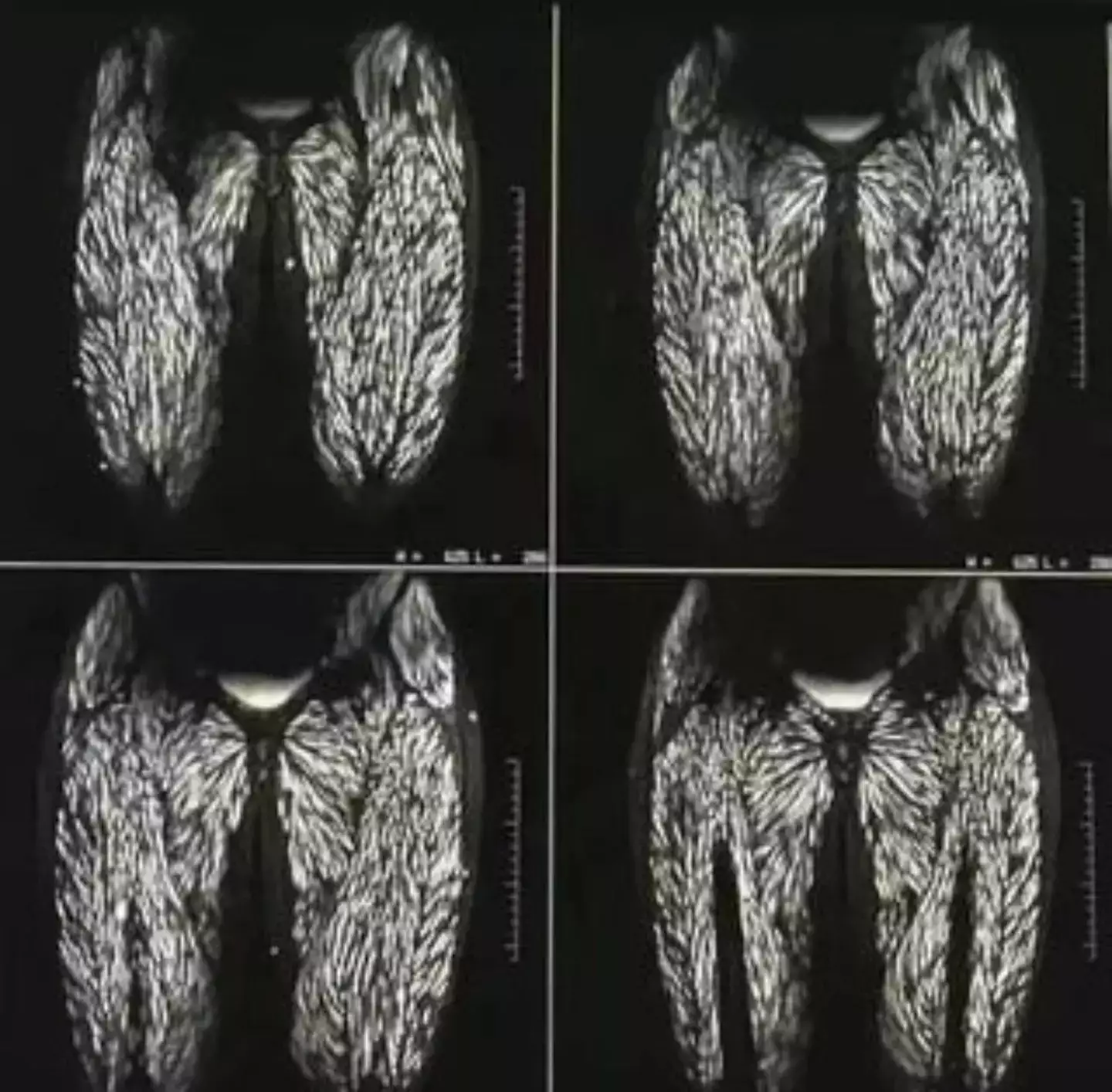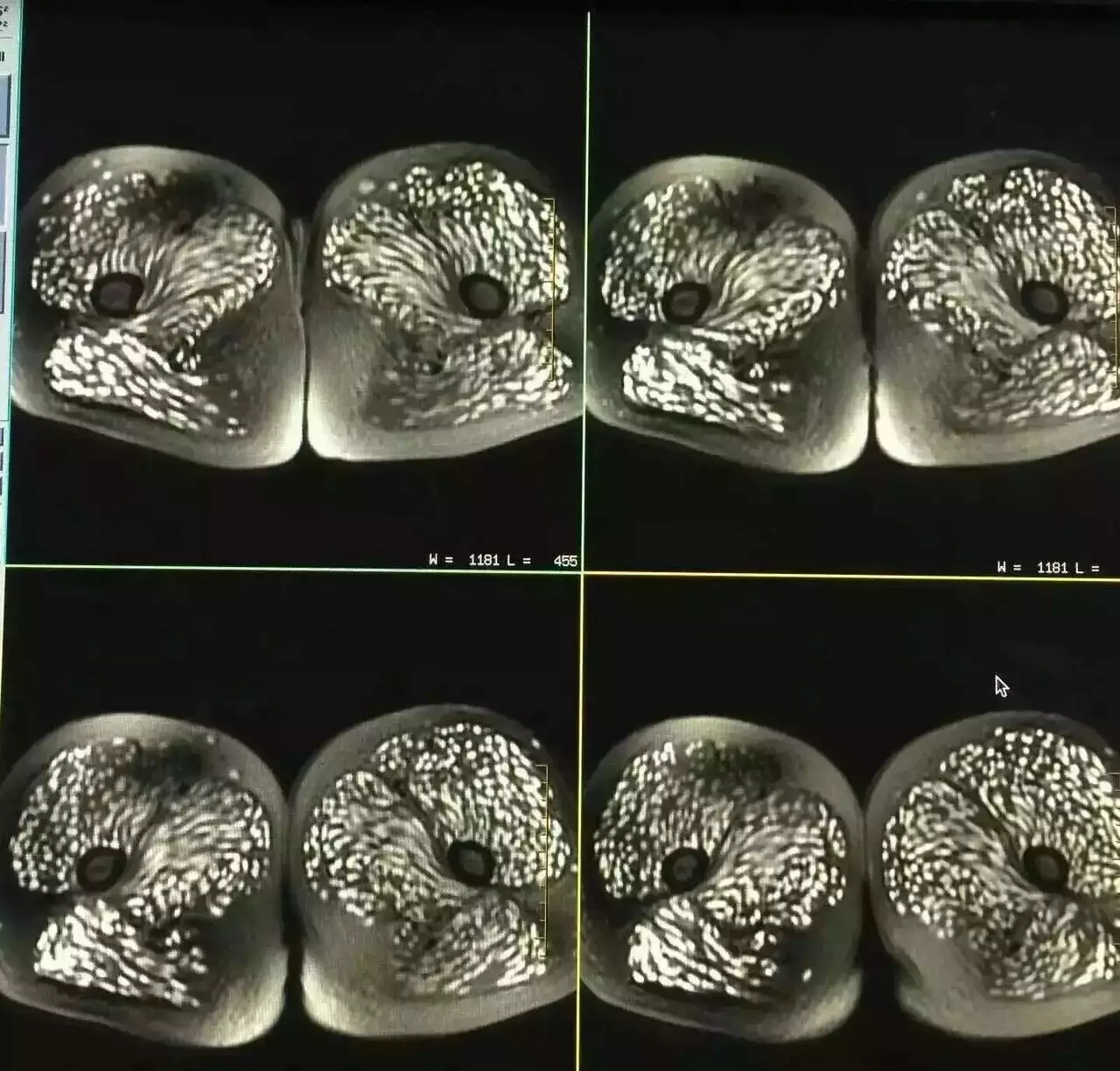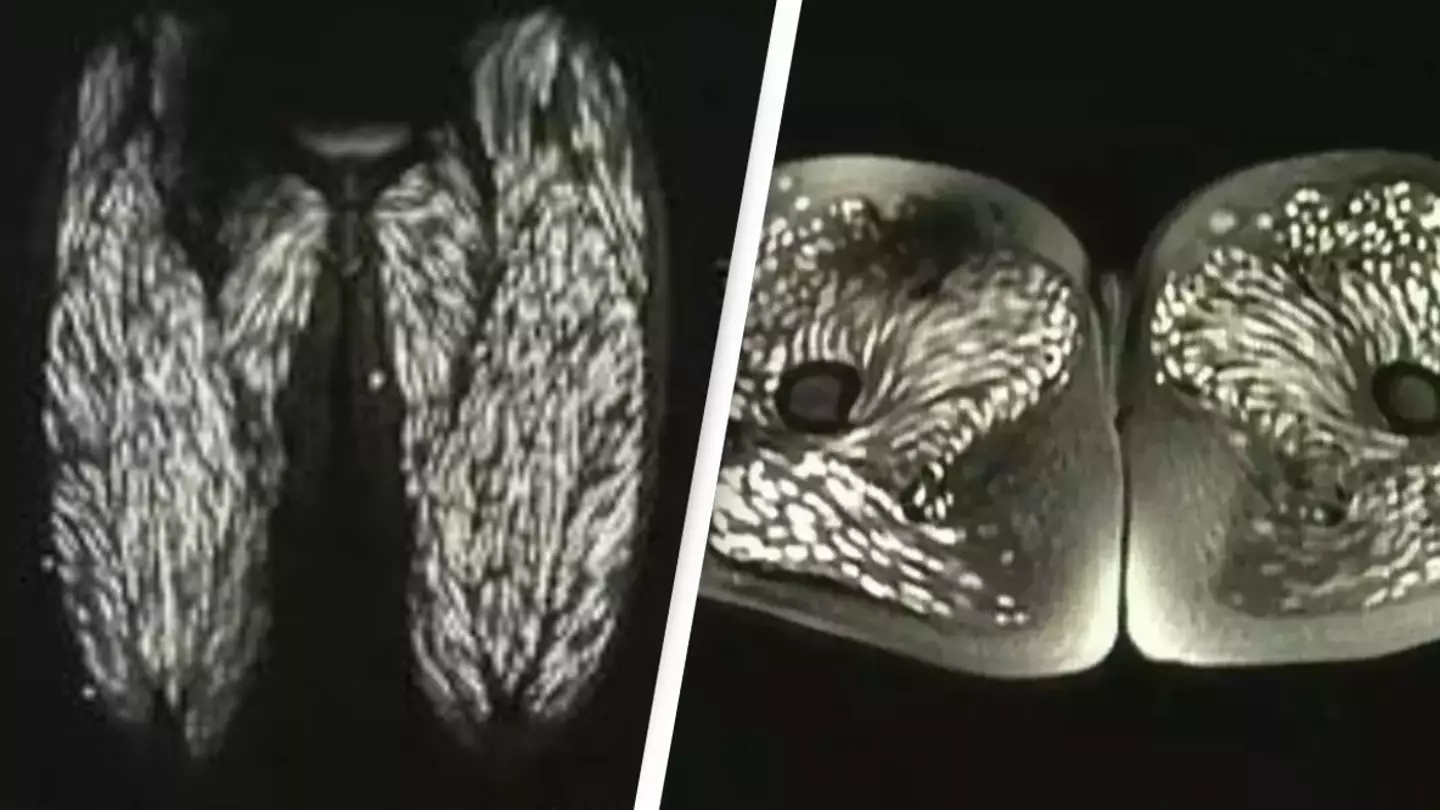A medical specialist has detailed how parasites can invade the human body following the circulation of disturbing scans depicting an infected woman.
In 2016, a woman referred to as Tingting (a pseudonym), hailing from Yubeng Village in Deqin County, China, experienced headaches along with thigh and eye pain.
Healthcare professionals recommended she undergo both MRI and CT scans to determine the root cause of her symptoms.
The scan results were alarming to the doctors.
They diagnosed her with cysticercosis, a condition that arises when an individual ingests tapeworm eggs.

These minute parasites had invaded Tingting’s back muscles, abdomen, eyes, and alarmingly, her brain.
It was subsequently revealed that she had been consuming raw pork for a decade.
Professor Meng Qiang, the head physician of the Department of Neurology at the Provincial First Hospital, remarked: “The patient had bulging eyes, retinal haemorrhage, multiple infections throughout the body, and epileptic seizures.
“Parasitic worms have the greatest impact on the brain and affect the central nervous system.
“The most common one is epilepsy, and it may also cause intellectual impairment. Some patients may also experience limb paralysis, language dysfunction, sensory impairment, etc.”
Although it might sound absurd to have a worm residing in one’s brain, it is more widespread than one might assume.
These parasites typically enter the body through the ingestion of pork tapeworm eggs found in contaminated food.
Dr. David Hamer, a professor of global health and medicine at the Boston University School of Public Health, explains that the eggs hatch and ‘sort of migrate through the body, ending up in muscles or in the brain’.

He further elucidated that the immune system combats these parasites by forming cysts around them.
Hamer elaborated: “It can form multiple cysts. Some people’s brains almost look like Swiss cheese with lots of holes and there can be a fair amount of inflammation.
“And after many years, the parasite in there dies and the cyst will degenerate and become calcified. And at that point there’s no need for treatment.”
These symptoms can irritate the brain, potentially leading to seizures.
In Tingting’s situation, it remains uncertain what her fate was post-diagnosis.
Fortunately, preventing cysticercosis is relatively straightforward.
The CDC advises washing hands thoroughly after using the toilet and changing diapers, and also before handling food.
Additionally, it is recommended to drink bottled water or boil tap water for at least one minute in areas where tap water is unsafe to drink.

